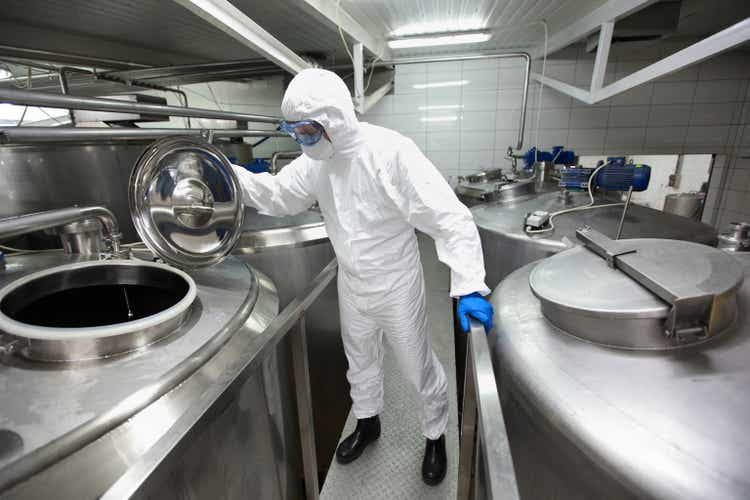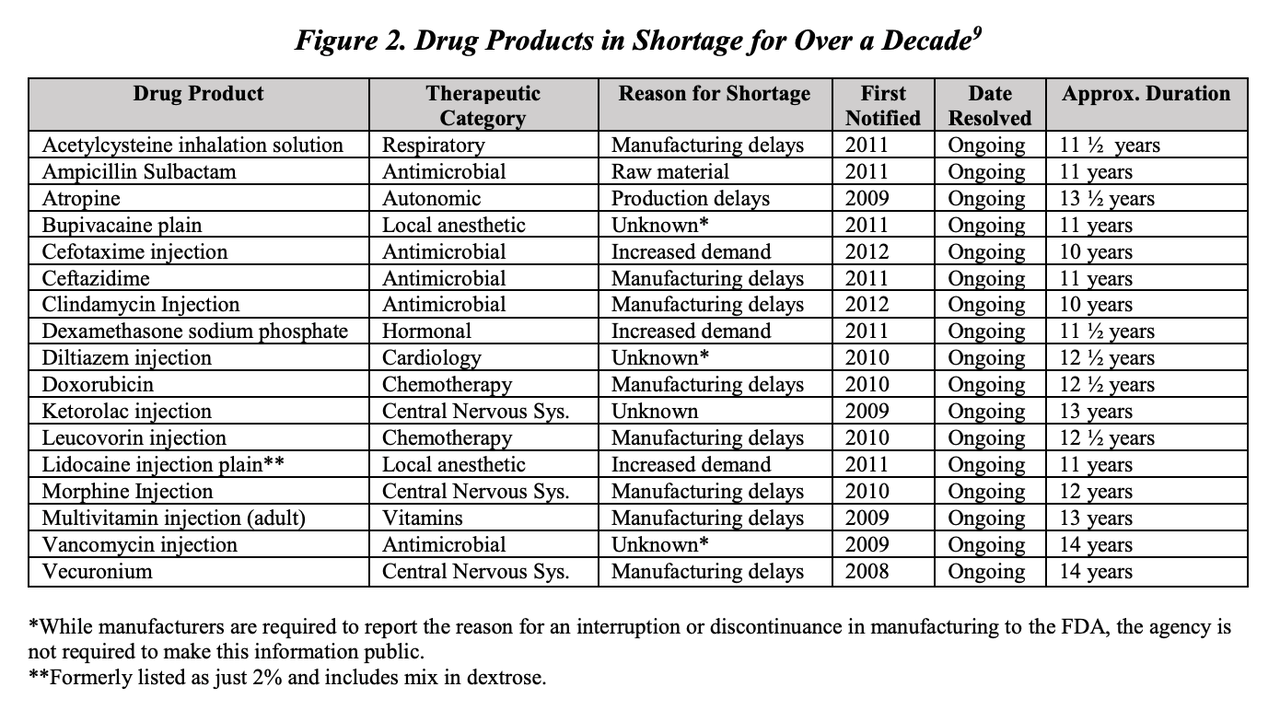White House seeking alternative supply chains for pharmaceutical ingredients
endopack/iStock via Getty Images
As the US has been dealing with shortages of key drugs, the White House has unveiled a report that aims to spur US biomanufacturing production.
Goals set in the report include producing at least 30% of the country's biochemical demand with sustainable biomanufacturing pathways in the next two decades.
Also in 20 years, a goal is to boost manufacturing scale of cell-based therapies to increase access and decrease the manufacturing cost of cell-based therapies 10-fold. Another goal is to sequence the genomes of one million microbial species and understand the function of at least 80% of the genes in five years.
Most active pharmaceutical ingredients for small-molecule drugs are produced overseas, in countries such as China and India.
"Realizing biomanufacturing breakthroughs for [APIs] has the potential to create environmentally sustainable, domestic alternatives to API production."
The report concedes that there have been few financial incentives for companies to move API production domestically "especially for production of molecules with low profit margins."
However, new biomanufacturing pathways could cut costs and make economic sense. "For example, advances in synthetic biology, including in precision fermentation and the use of cell-free systems, could enable firms to produce multiple APIs in the same facility, with a reduced need for retooling."
A US Senate Committee on Homeland Security and Governmental Affairs report released Wednesday found the number of active drug shortages reached an all-time high of 295 in 2022.
The Senate report noted, "Neither the federal government nor industry has end-to-end visibility of the pharmaceutical supply chain — from the key starting materials, APIs, finished dosage and various other manufacturers that are "upstream" — to the "downstream" suppliers, which include purchasers and providers."
Major drugmakers: Pfizer (NYSE:PFE), Merck (NYSE:MRK), Bristol-Myers Squibb (BMY), Eli Lilly (LLY), Johnson & Johnson (NYSE:JNJ), AstraZeneca (AZN), GlaxoSmithKline (GSK), Novartis (NVS), Roche (OTCQX:RHHBY), Viatris (NASDAQ:VTRS), Teva Pharmaceutical (TEVA).
